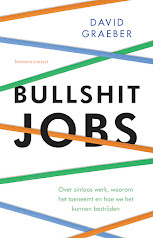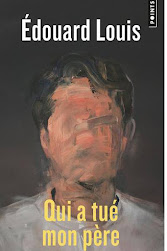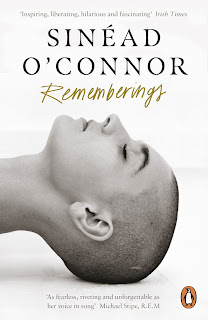Ik ben een regelmatige luisteraar van het programma Nieuwe Feiten, met Lieven Vandenhaute, op VRT Radio 1. Het eindigt altijd met de rubriek Middagjournaal, waarin een gast vijf opeenvolgende dagen in een radiocolumn van een vijftal minuten persoonlijke overwegingen ventileert, vaak humoristisch. Wie daarbij regelmatig terugkeert is Nico Dijkshoorn, van wie ik toevallig een boek in handen kreeg dat ik met gretigheid gelezen heb en waarover ik hieronder een verslagje schrijf.
Ik wist overigens niet dat Nico Dijkshoorn niet alleen een Nederlandse columnist is, maar tevens een dichter, schrijver en muzikant. En dat hij o.a. bekend werd door zijn wekelijkse optreden in het televisieprogramma De Wereld Draait Door (DWDD), van 2008 tot 2020 (!) Zijn oeuvre is trouwens uitgebreid en ik zal er nog wel wat tijd voor nodig hebben, want ook veel van zijn columns zijn dus gebundeld. Ik las overigens ondertussen ook al Alles en Niets, een verhalenbundel uit 2017.
'Nooit ziek geweest' is een belangrijk boek binnen het oeuvre van Dijkshoorn. Met dit boek, verschenen in 2012, toonde hij dat hij niet alleen humoristische columns kan schrijven, maar ook een gevoelige en introspectieve roman kan neerpennen. Het boek is een eerlijke en ontroerende verkenning van een universeel thema: de complexe band tussen ouders en kinderen. Hij neemt ons mee op een persoonlijke reis door zijn jeugd en volwassen leven, waarbij hij de complexe relatie met zijn vader onder de loep legt. Met een mix van humor, ontroering en scherpe observaties schetst Dijkshoorn een levendig portret van een man die zowel geliefd als gevreesd was.
Het boek is opgebouwd rond een reeks anekdotes, waarin Dijkshoorn de eigenaardigheden en contrasten van zijn vader onthult. Zijn vader is een excentrieke figuur, een levensgenieter die van het leven een feest maakt. Tegelijkertijd is hij een egocentrische man die moeite heeft met intimiteit en zijn gevoelens te uiten. Dijkshoorn worstelt met de vraag in hoeverre hij op zijn vader lijkt en hoe hij zich kan onderscheiden van zijn dominante figuur. Deze zoektocht wordt versterkt door de terugkerende verwijzingen naar de honkbalcarrière van Klaas, een sport die voor Dijkshoorn zowel een bron van bewondering als van frustratie is.
De schrijfstijl is direct, toegankelijk en vaak humoristisch, net zoals zijn columns. En hij gebruikt veel spreektaal en Amsterdamse uitdrukkingen, waardoor het boek een authentiek en levendig karakter krijgt. De anekdotes zijn vaak grappig, maar worden afgewisseld met meer serieuze momenten waarin de auteur reflecteert op de impact die zijn vader op zijn leven heeft gehad.
Dit boek heeft me enorm verrast, en ik raad het dan ook graag aan.





















